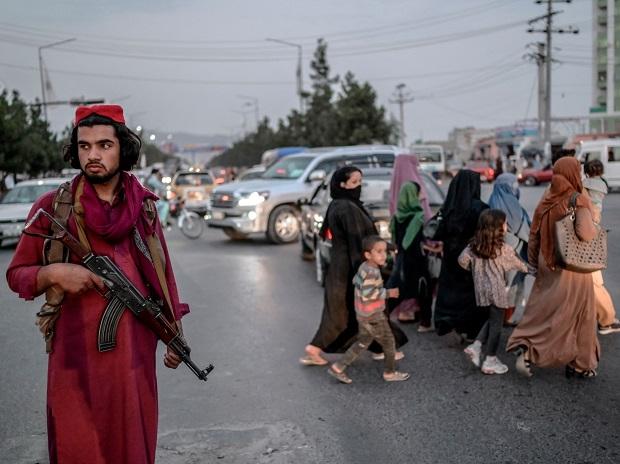[ad_1]
)
Almost 100,000 female school teachers have lost their jobs, and thousands of women and girls are not being given the chance to pursue further education |Photo: Bloomberg
In a recent report, United Nations experts voiced concerns about the Taliban’s “arbitrary” arrest of women and children in Afghanistan.
They have claimed that incarcerated females in the Taliban regime’s jails have been physically abused, Khaama Press reported.
The report, issued on Friday, February 2, states: “We urge the Taliban to immediately lift the restrictions imposed on women’s dress and halt the detention of girls under this pretext.”
These experts, totaling roughly 10, have urged the Taliban administration in Afghanistan to implement international human rights norms, particularly the elimination of all forms of discrimination against women, as Afghanistan is a signatory to the convention, Khaama Press reported.
According to the report, arbitrary detention of girls for dress code violations began in early January and was primarily concentrated in the western Kabul region, which is predominantly inhabited by Hazara residents, before spreading to other parts of the city, including Khair Khana, which is predominantly inhabited by Tajiks.
The experts also noted that females were detained in the provinces of Bamyan, Daikundi, Panjshir, Balkh, and Kunduz.
“Women and girls detained were transferred to the police stations where they received only one meal a day and continued to face physical torture,” the experts added.
Due to Taliban-imposed limitations, more than a million Afghan girls are unable to attend school or receive an education.
In addition, almost 100,000 female school teachers have lost their jobs, and thousands of women and girls are not being given the chance to pursue further education. These restrictions have negatively impacted Afghan women’s and girls’ rights to an education, Khaama Press reported.
Despite the Taliban’s initial promise to take a moderate approach towards women’s rights after it seized power in August 2021, the ban on higher education is just one of many steps that the armed group has taken to further segregate the country and limit women’s role in society.
In the immediate aftermath of August 2021, the Taliban banned girls from going to school beyond the sixth grade and imposed strict rules requiring women to wear hijabs and to travel only with a male chaperone.
They closed down beauty salons and blocked women from working with domestic and international non-governmental aid groups, sparking international outrage on the matter.
First Published: Feb 04 2024 | 7:32 AM IST
[ad_2]

